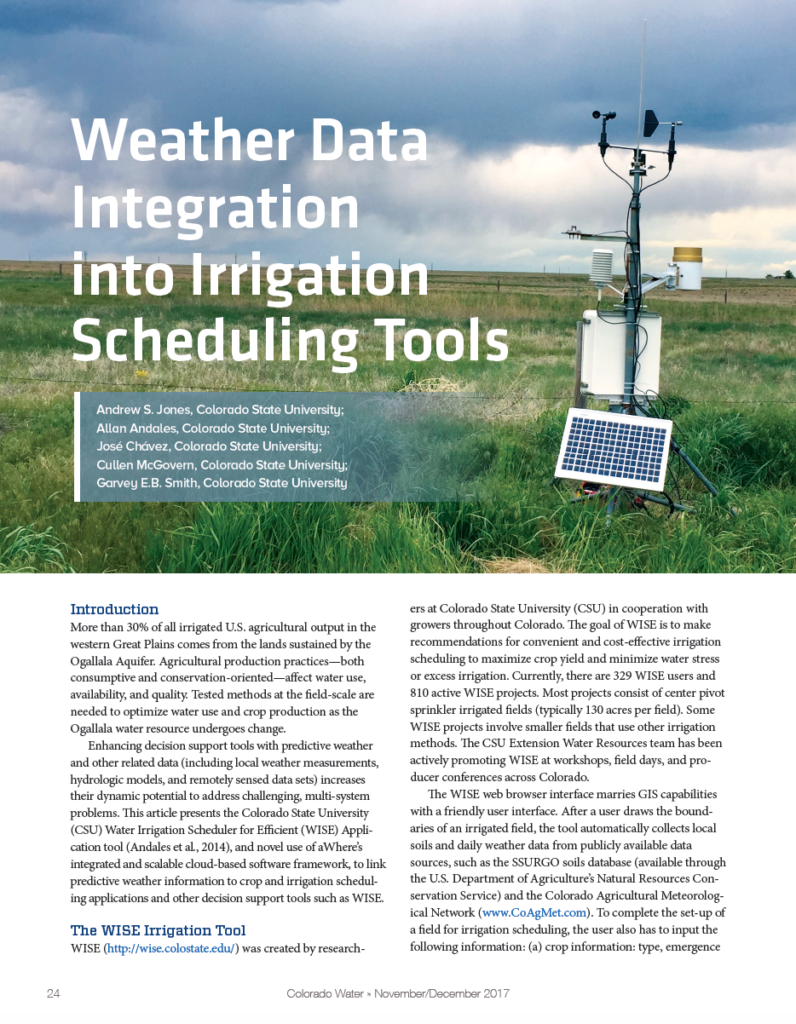A 2019 study applied the use of predictive weather data within the WISE (Water Irrigation Scheduler for Efficient Application) tool from Colorado State University). The goal of this study was to apply the methods introduced in a related paper (part 1) to improve the WISE tool, so it can be used to answer the question “how long can a crop water application be delayed while maintaining crop yield production?” by integrating predictive weather along with evaluating crop growth stage interactions as a function of soil depth, rainfall events, and their uncertainties. As of March 2020, this study’s recommended methods are not yet integrated into the WISE tool, but are available as a standalone diagnostic tool. Testing involving this study’s work to determine how to optimize various WISE parameters to improve its performance is ongoing.
Jones, A. S., A. Andales, J. Chávez, C. McGovern, and G. E. B. Smith, O. David, and S. J. Fletcher (2019). Use of predictive weather uncertainties in an irrigation scheduling tool Part II: An Application of Metrics and Adjoints. J. Amer. Water Resources Assoc.
This article is part of a JAWRA featured series: Optimizing Ogallala Aquifer Water Use to Sustain Food Systems.

